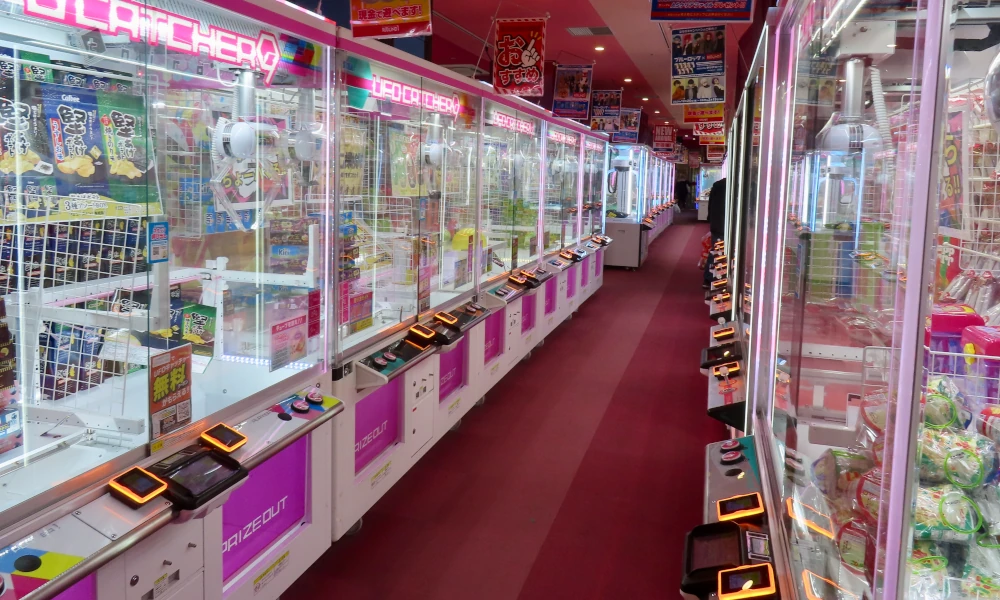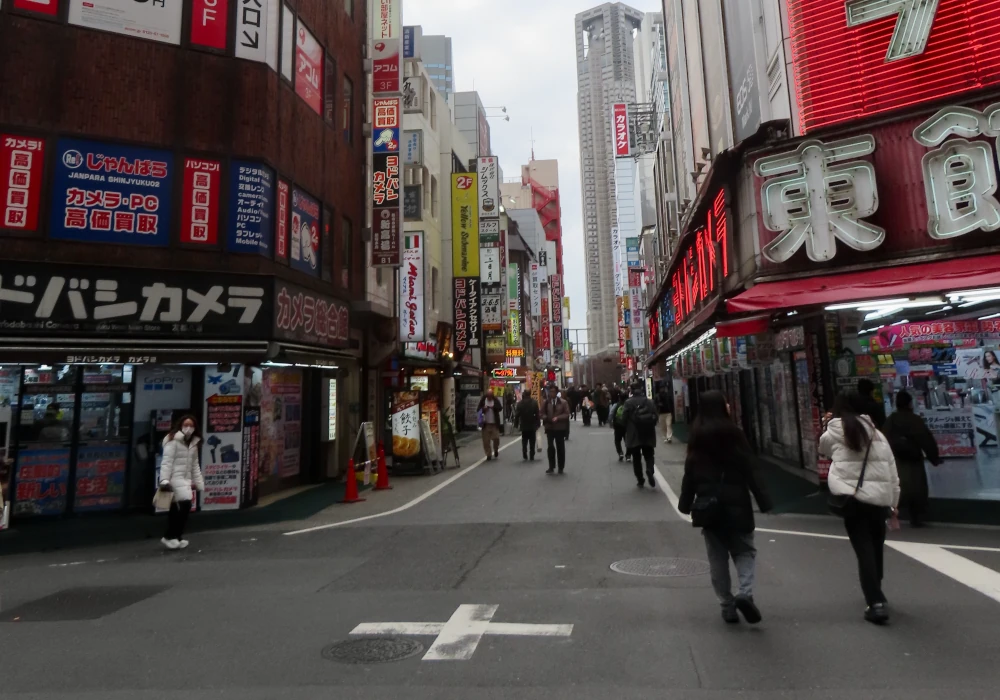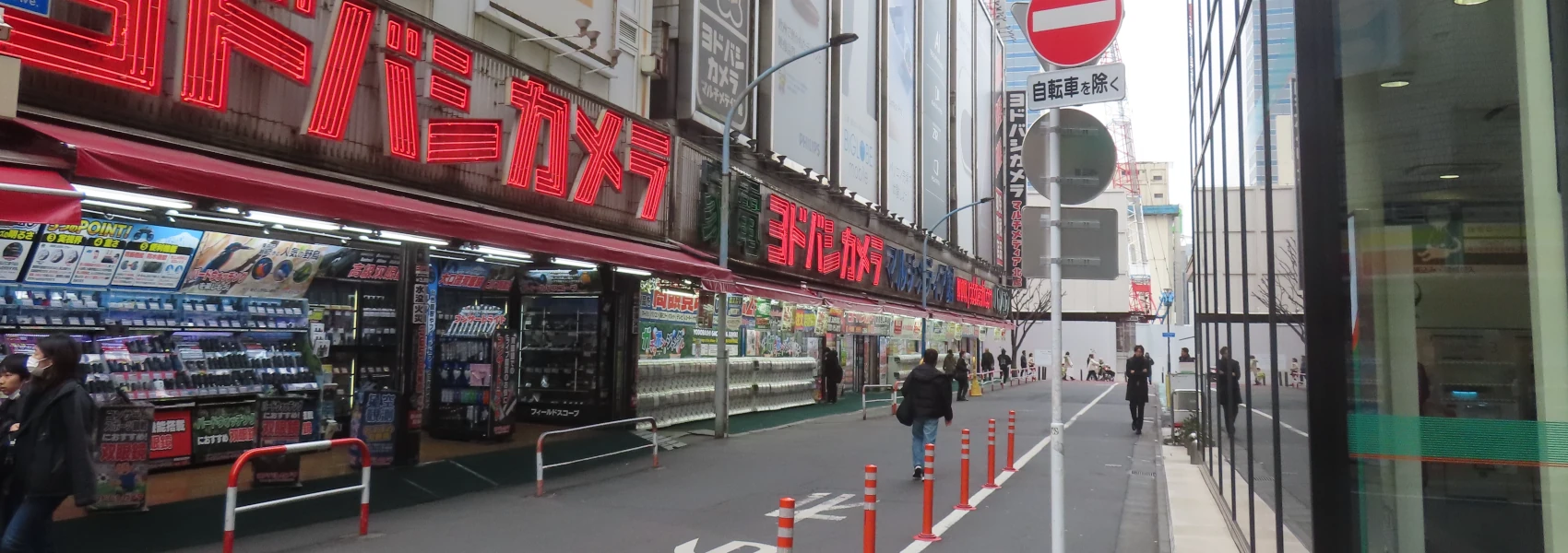Dispatch from Tokyo
by
I landed in Tokyo around 6 a.m. on my birthday. I got to the hotel, took a shower, a short nap, stepped into the street, chose a ramen shop at random, and had the best ramen I had ever had in my life. It was not a fluke. I keep typing and deleting things to say about Tokyo, to try to summarize it or give you a way in, or something. I can't do it. It's been almost a week, and I've barely scratched the surface. All I can say is that I love it. And maybe tell you some stories.
I'm staying in Shibuya, which is a special ward, and you could think of it kind of like a borough of NYC or one of the sub-cities that make up Los Angeles, but it's not like that either. It's geographically smaller but has way more stuff. And there are multiple sort of units like this, some seemingly administrative while others are more vibe-based neighborhoods. Everything you find in Tokyo has another thing inside it, and that thing has another thing, and possibly a mall, and an underground and overground and park and another miniature city and a convenience store. Shibuya is kind of party central and would make me feel dreadfully old and unhip if I didn't feel like a completely outsider, so free of any belonging or not belonging, by so utterly not belonging anyway.
If you've ever played a video game where you start out in a zone and you think, wow, this is huge, and then you spend a ton of time exploring it, and then you realize it's the starting zone and you go into the main zone from it, and then realize that zone is just one of dozens on this continent, of which there are several, and also you can port to other planets? That's what every train station in Tokyo that I've been to is like. Granted, I think it's mostly been the big ones, like Shibuya Station, Shinjuku Station, and Tokyo Station. But I think Kichijoji Station isn't one of the major ones and it's also like that. It has at least two malls basically on top of it! I went to Kichijoji because it has a well-recommended capybara and cat cafe, which was wonderful and the animals seemed very well taken care of.

Claw machines take up most of one floor of a multi-floor game arcade off the side of a shopping arcade that's part of a series of little shopping streets in Kichijoji, which is considered one of the laid back and more residential neighborhoods of Tokyo.
Every time I've walked back from Shibuya Station to my hotel on my own, which is a 10 minute walk, I've ended up taking a different path and getting a little lost, on purpose or by accident, and discovering several completely new things. I can spend however long I want trying to orient myself in a part of the city during the day and then when night falls, it seems like they roll up the city and replace it with a whole new one, which is just as complex, where everything is different. If you know me, you know I get lost pretty easily so you might think nothing of this, but even Paul is getting lost. The layered geometry of Tokyo with its multiple levels, alleys, arcades, and secret ways through stores breaks even his excellent sense of direction. Meanwhile I do like I always do and try to orient based on memorable landmarks and go with the flow of the crowd. But everything is new and the crowd is ever-present. And I can't read the signs[1].
There are hot and cold drink vending machines everywhere and I am obsessed with the way some of them have deals for ¥100, which you should think of as $1 in terms of how willing you should be to spend it, but at the current exchange rate it's about 64 cents. If I pass a street food, I feel compelled to try it if I haven't before, because why wouldn't you, right? I mean, maybe you wouldn't but I would. I regret I have only one stomach to give to Tokyo street food.
Meanwhile, Paul has been in some kind of mix of paradise/FOMO hell trolling the junk shops of Akihabara for old video games, cables, old iPods, and who knows what. I understand going through crates upon crates of vintage e-waste makes him feel the same way stationary stores and street food make me feel. I have been to a lot of stationary stores and while I never thought I'd say this, I think I've seen enough stationary.

A small side street in Shinjuku. This could be the impressive main street of any midsize city but it's just one of many commercial side-streets in one of the many sub-areas of Tokyo.
My biggest regret is that I didn't study up on any Japanese before coming here. I've managed to learn some basic politeness and commercial phrases in the last week, and as I've gotten more comfortable using them it's opened a world of incredible friendliness. People in Tokyo seem generally reserved, honestly not unlike London or even New York, but they are very willing to chat in appropriate situations if you put in the least effort. Google translate and automatic translation of photos helps find your way around and figure out important things like what's inside that tasty looking pastry, and how to ask for an ace bandage when you roll your ankle, but it's no substitute to being able to scan the street for signs, understand basic instructions, or ask for any kind of help.
Japanese phonemes are fairly easy to comprehend to an English-speaker's ear and simple to pronounce, particularly if you compare to other non-European languages. It's not like Hindi where there are versions of the "d" sound which I can't distinguish by ear, never mind say, or the tonal complexity of Mandarin, or harder, Cantonese! However, unlike European languages which all have cognates I can use to start picking up vocab for free and phonetic writing systems I already know[2], or close enough, the only Japanese vocabulary I already had was food words. I started noticing repeat characters, especially in station names, which scroll by on train announcements in kanji (logographic characters), romaji (phoneticized as Latin alphabet letters), and hiragana (a phonetic syllabary). I didn't realize that the names were in two character systems, but once I did, and that one of them was phonetic, I started to decipher hiragana using the spoken announcements and romaji. It should be possible, I think, to learn to sound out hiragana in a week or two of practice, and once you had that you could start picking up tons of passive vocabulary by ear and from signs written to be accessible to all. That still leaves katakana, the other phonetic system, which I haven't tried working out but, and these may be famous last words, it's a phonetic writing system, how hard can it be to memorize? kanji are another matter entirely and I think overthinking how hard kanji are kept me from even trying to learn the phonetic systems.
And now it's late Friday night for me, so I will conclude without any conclusion this last post in my series from the road. Next week, it's back to the regular, which is to say irregular and whatever I feel like.
I mean literally, I cannot read the language. But also metaphorically, the symbolic semantics are not clear to me. Which fonts mean old or new? What colors mean food or electronics or cheap or fancy? What's racy? What's tame? What's a chain? ↩︎
The Latin alphabet, obviously, and I can also read Cyrillic and Greek, which I think covers all the European alphabets. There are variations in how Cyrillic is used, but it's easy enough to work out. ↩︎
